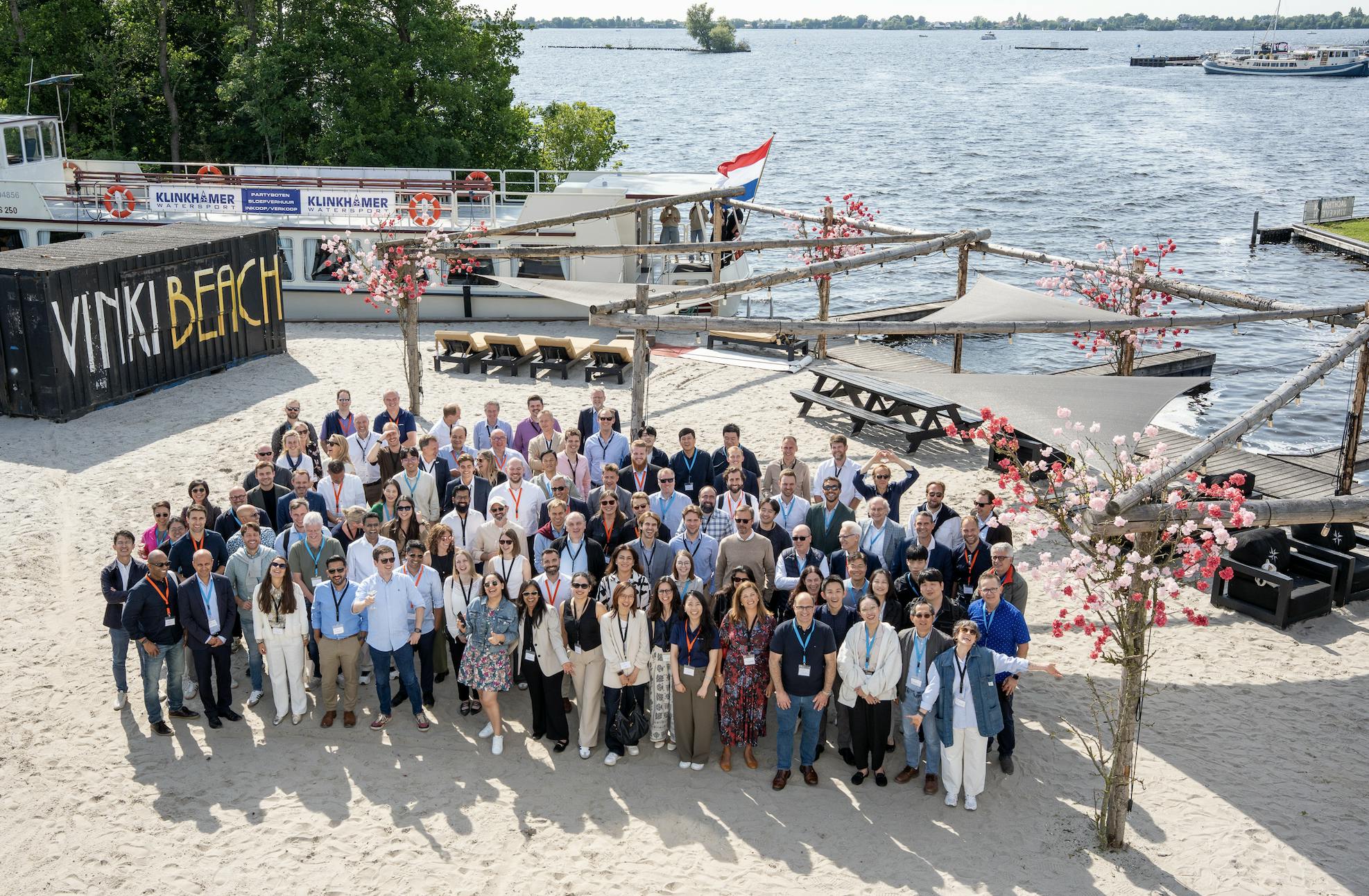Every year, DCSA Week serves as a pivotal moment for the global container shipping community, providing a unique and essential forum where leading carriers, logistics providers, technology partners, and other key stakeholders come together. At its core, DCSA Week aims to deliver on DCSA’s mission - actively shaping the digital future of container shipping through actionable collaboration, establishing practical frameworks and non-competing standards that can be rolled out across the industry.
Expanding the community
This year’s event, held in Amsterdam earlier this June, marked the first gathering to include both members and the partners who have joined since the launch of the DCSA+ shipping partnership programme. The participation of an expanding, cross-sectoral community underscores a collective commitment to seamless digital global trade. Reflecting this, voices from across the industry enriched the week’s discussions - from André Simha (MSC), Dave Sherry (Maersk), and Dominique Willems (DCSA), who offered strategic perspectives on scaling adoption, to ecosystem leaders such as Stephan Printz (DB Schenker), Raid Kokaly (Lufthansa Industry Solutions), and Jaison Augustine (WNS), who shared practical implementation insights and on-the-ground challenges.Making the case for eBL adoption
A key focus of this year’s event was the collective push toward achieving full adoption of the electronic Bill of Lading (eBL) by 2030. Significant developments such as the launch of the DCSA Bill of Lading 3.0 standardand the first successful exchange of a fully interoperable eBL signal real, tangible progress. While these milestones mark important steps forward, there is plenty more to be done. As DCSA’s Flavia Buso put it: "Digitising documents is not optional. If carriers don’t provide it, we can’t operate." Another attendee captured the sentiment even more starkly: "If you're not digital, you're not compatible." A clear signal that digitalisation isn’t just about efficiency, it’s about survival in a rapidly evolving industry.Embracing interoperability as the industry baseline
Interoperability also emerged as a unifying theme throughout the week - not only as a technical requirement but as a mindset shift. It’s no longer sufficient to agree on digital standards; successful transformation depends on implementing them consistently across systems, carriers, and partners.From Booking to Track & Trace and eBLs, the sessions demonstrated that the real value of standards is unlocked only when they’re uniformly adopted. Mariana Bock Losada, Chief Growth Officer at DCSA reinforced the importance of consistent standards implementation, emphasising: "Interoperability isn't merely about agreeing on standards; it's about consistent implementation. This is how we make global trade faster, cleaner, and more customer-focused."Celebrating a collective step forward
Although hurdles remain, the optimism across the week was palpable, fuelled by engagement throughout the week. Thomas Bagge, CEO of DCSA, highlighted the significance: “DCSA Week 2025 was a milestone in our efforts to digitalise container trade. Having built a foundation with our members, this was the first time we invited our partners to join our work: discuss the roadmap, align on plans for existing standards, address adoption gaps and share operational feedback. It was especially rewarding see almost all the ecosystem represented: shippers, freight forwarders, feeder operators, port and terminal operators and technology service providers. It reinforces our belief in collaboration and the role DCSA plays in shaping a more connected industry.”
Save the date: DCSA Week 2026
After this year’s success, we’re already looking ahead to 2026. As an invite-only event for members and DCSA+ partners, DCSA Week remains the industry’s forum for progress on digitalisation and interoperability.
We’re always looking to grow this collaborative community. If you're interested in attending next year, visit the DCSA+ programme page to explore the benefits of joining DCSA+ and become part of the conversation shaping the future of global trade.
